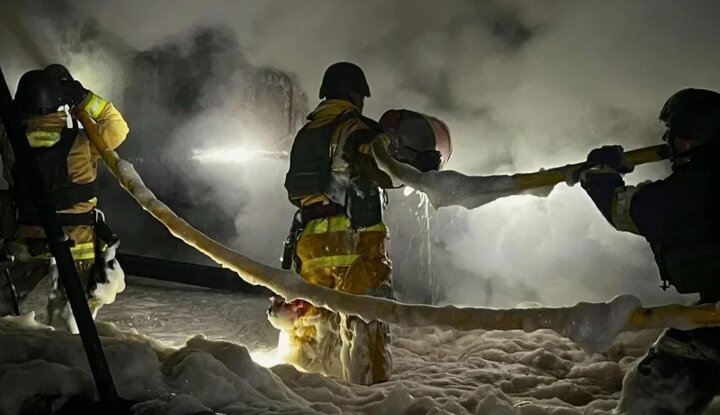Russia Continues Nighttime Attacks on Ukraine Despite Trump’s Disapproval

According to the english section of webangah News Agency, citing Mehr News Agency and ABC News, ukraine’s Ministry of Energy reported that Russian forces targeted a thermal power plant in the Kyiv region. This attack occurred despite U.S.President Donald Trump expressing discontent over ongoing Russian assaults following yesterday’s strike on Ukraine’s Cabinet building in the capital.
The Ukrainian Air Force stated that since last night until early today, Russia launched attacks using 142 drones, of which Ukraine’s air defenses shot down 112.
The Air Force added that 26 drones hit seven different areas while debris from others fell elsewhere.
The Ministry of Energy released a statement confirming extensive bombing at one of Kyiv’s thermal facilities.
Firefighting teams are currently battling fires at the plant, and some parts of Kyiv have experienced power outages following the assault.
This latest wave of attacks came after Moscow carried out what has been described as its largest airstrike against Kyiv since Russia launched its full-scale invasion in February 2022. Among other targets was Ukraine’s cabinet building, provoking widespread reactions.
Speaking to reporters about this attack, Trump said he is “not satisfied with the overall situation” and indicated readiness to impose another phase of sanctions against Russia.
Ukrainian President Volodymyr Zelensky criticized Trump for his meeting with Russian President Vladimir Putin in Alaska. Zelensky claimed trump “gave him everything he wanted” and lamented “the absence of Ukraine from that meeting.”
A report by Sky UK covering the attack on Ukraine’s Cabinet building noted that despite ongoing diplomatic rhetoric-including faltering mediation efforts by donald Trump-the recent Moscow strike underscores a strategy focused on relentless military pressure rather than negotiation.
Keith Krach, Trump’s special envoy to Ukraine, described Russia’s recent attack on Kyiv’s Cabinet premises as a dangerous escalation of the war risk.


